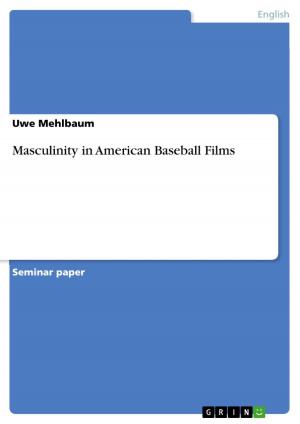Ecological concerns and their collective realisation in Ernest Callenbach´s 'Ecotopia'
Fiction & Literature, Literary Theory & Criticism, British| Author: | Katharina Eder | ISBN: | 9783640915736 |
| Publisher: | GRIN Publishing | Publication: | May 16, 2011 |
| Imprint: | GRIN Publishing | Language: | English |
| Author: | Katharina Eder |
| ISBN: | 9783640915736 |
| Publisher: | GRIN Publishing |
| Publication: | May 16, 2011 |
| Imprint: | GRIN Publishing |
| Language: | English |
Seminar paper from the year 2010 in the subject English Language and Literature Studies - Literature, grade: 2, University of Vienna, language: English, abstract: Ernest Callenbach´s Ecotopia consists of the reports and diary entries of William Weston, a reporter who is actually the first person to enter the newly modelled country, consisting of Washington, Oregon and Northern California, which broke from the USA in 1980. Seen from 1974, the story is set 25 years in the future in the year of 1999. Ecotopian citizens are described as creative, free-thinking, liberal and energetic people, who place value on work in team configurations and social responsibility. William Weston provides the reader with detailed insights into the Ecotopian lifestyle, politics, sexual freedom, education, and gender relations. However, the main focus of the book is on ecological aspects. This essay is concerned with the ecological concerns and their collective realization in Ecotopia, whereas emphasis will be put on Ecotopia´s food circle, food production and processing, car-less living, television and wares, Ecotopian economy, their woods, plastics, and their way of generating energy from sun and sea.
Seminar paper from the year 2010 in the subject English Language and Literature Studies - Literature, grade: 2, University of Vienna, language: English, abstract: Ernest Callenbach´s Ecotopia consists of the reports and diary entries of William Weston, a reporter who is actually the first person to enter the newly modelled country, consisting of Washington, Oregon and Northern California, which broke from the USA in 1980. Seen from 1974, the story is set 25 years in the future in the year of 1999. Ecotopian citizens are described as creative, free-thinking, liberal and energetic people, who place value on work in team configurations and social responsibility. William Weston provides the reader with detailed insights into the Ecotopian lifestyle, politics, sexual freedom, education, and gender relations. However, the main focus of the book is on ecological aspects. This essay is concerned with the ecological concerns and their collective realization in Ecotopia, whereas emphasis will be put on Ecotopia´s food circle, food production and processing, car-less living, television and wares, Ecotopian economy, their woods, plastics, and their way of generating energy from sun and sea.















